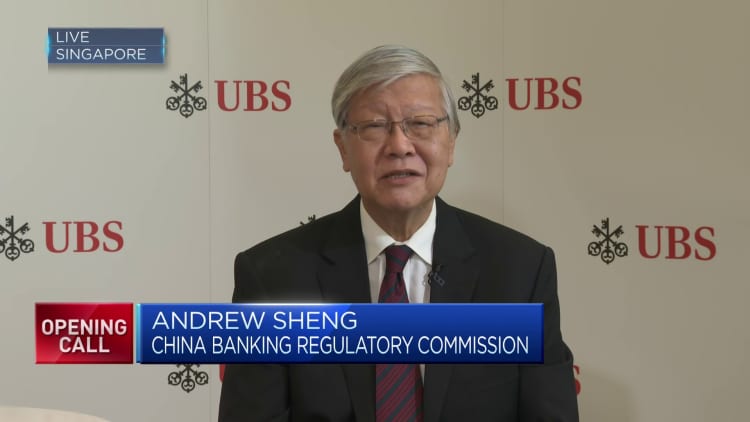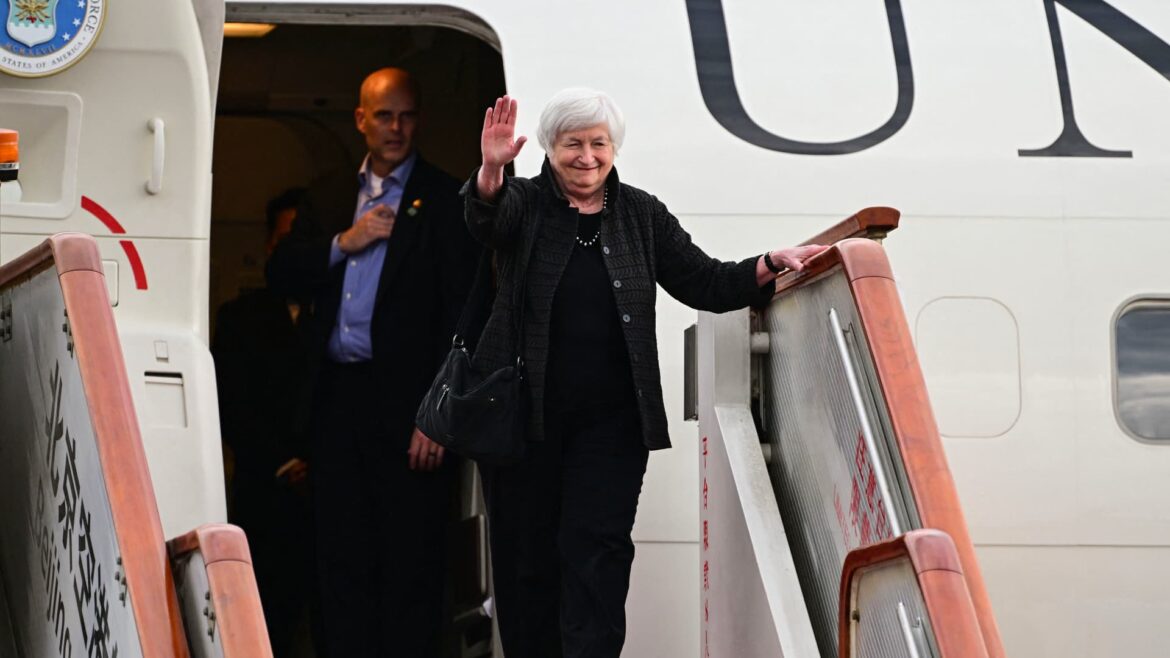US Treasury Secretary Janet Yellen (R) arrives at Beijing Capital International Airport in Beijing on July 6, 2023.
Pedro Pardo | AFP | Getty Images
Treasury Secretary Janet Yellen landed in Beijing Thursday on a four-day trip aimed at finding common ground as rivalry between the U.S. and China becomes increasingly adversarial.
Yellen’s trip marks a deepening thaw in ties between the U.S. and China and comes weeks after Secretary of State Antony Blinken’s visit to Beijing in last month, which was the first high-level meeting between the two countries after months of tensions.
“The two sides are basically talking, trying to find the strategic space for both sides to operate, and this will be very good for the rest of the world,” Andrew Sheng, a distinguished fellow at the University of Hong Kong’s Asia Global Institute, told CNBC Thursday.

Yellen’s trip comes just days after China abruptly imposed export curbs on chipmaking metals and its compounds, escalating Beijing’s technological war with the U.S. and Europe.
Before departing for China, Yellen had a “frank and productive discussion” with Xie Feng, the Chinese U.S. ambassador, according to the U.S. Treasury.
“While in Beijing, Secretary Yellen will discuss with [People’s Republic of China] officials the importance for our countries — as the world’s two largest economies — to responsibly manage our relationship, communicate directly about areas of concern, and work together to address global challenges,” the Treasury Department said Sunday.
In an April speech, Yellen stressed the importance of fairness in the U.S. economic competition with China.
She outlined three economic priorities for the U.S.-China relationship: securing national security interests and protecting human rights, fostering mutually beneficial growth and cooperating on global challenges like climate change and debt distress.
A senior administration official told reporters Sunday that Yellen’s visit will underscore these objectives.
“We do not seek to decouple our economies,” the official said. “A full cessation of trade and investment would be destabilizing for both of our countries and the global economy.”
